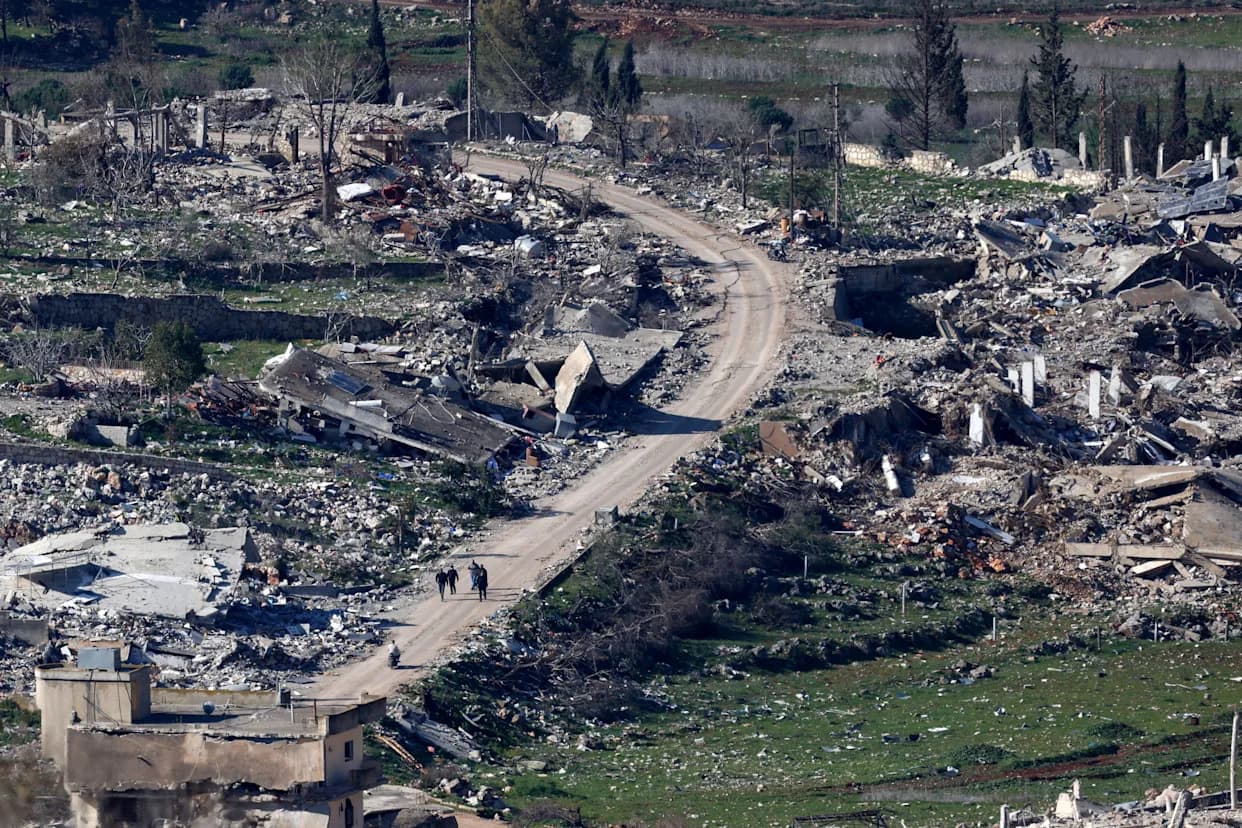Israeli strikes in southern Lebanon killed three people and wounded several others, including two brothers struck between Ain Ata and Shebaa. Israel says it targeted Hezbollah positions; the military has not publicly released evidence to support that claim. The EU strongly condemned the attacks and urged full respect for the November 2024 ceasefire, while UNIFIL and Lebanese authorities warned the strikes threaten civilians and undermine stabilization efforts. Tensions remain high amid efforts to disarm militias in the south.
Israeli Strikes Kill Three in Southern Lebanon as EU Urges Respect for Year‑Old Ceasefire

Three killed, several wounded in multiple strikes across southern Lebanon
Two brothers were killed when an Israeli air strike hit a vehicle on the road between the southeastern Lebanese towns of Ain Ata and Shebaa, Lebanon’s National News Agency (NNA) reported. Later on Saturday an Israeli drone struck a car near Salah Ghandour Hospital in the southern town of Bint Jbeil, wounding seven people, the Lebanese Ministry of Health Affairs said. The ministry said two missiles struck the vehicle in the densely populated area.
A third strike that day reportedly hit a car in the Baraachit area, NNA said; a photograph circulated by the agency showed smoke and burning wreckage on the road. The health ministry said that attack killed one person and wounded four.
Israel’s military said the strikes were directed at Hezbollah targets but provided no evidence publicly to support the claim.
Despite a truce reached in November 2024, near‑daily clashes and strikes have continued along the Lebanon–Israel frontier while Israeli forces remain deployed in parts of southern Lebanon. Hezbollah says it remains committed to the ceasefire but refuses to disarm while Israeli forces occupy Lebanese territory and carry out attacks.
International and local responses
The European Union issued a strong condemnation of the recent strikes on Saturday and called for immediate respect for the ceasefire. “The EU calls on Israel to cease all actions that violate resolution 1701 and the ceasefire agreement reached a year ago in November 2024,” EU foreign affairs spokesman Anouar El Anouni said, adding that Hezbollah and other Lebanese groups should “refrain from any measures or responses that could further inflame the situation.”
The Lebanese army accused Israel of attempting to “undermine Lebanon’s stability” and of obstructing the full deployment of Lebanese forces required under the truce. The Lebanese president condemned the wave of attacks as a “flagrant breach” of international law, while Iran denounced the strikes as “savage” and urged the international community to intervene.
UNIFIL, the UN peacekeeping force in Lebanon, warned that the attacks endanger civilians and undermine the Lebanese military’s efforts to assert control over what it calls “unauthorised weapons and infrastructure” in the south — a likely reference to Hezbollah.
Israeli leaders have signalled the possibility of intensified operations near the northern border. Prime Minister Benjamin Netanyahu has warned Israel could step up operations in Lebanon, while Defence Minister Israel Katz said: “Maximum enforcement will continue and even intensify — we will not allow any threat to the residents of the north.”
Why tensions remain
The situation remains volatile nearly a year after the killing of a senior Hezbollah figure in September 2024, which significantly affected the group’s leadership structure. Under the ceasefire terms, Lebanon’s army is expected to extend its deployment and oversee the disarmament of nonstate armed groups in the south by the end of the year, before expanding the initiative nationwide. Hezbollah insists Israel is exploiting that process to tighten control over Lebanese territory and refuses to disarm while Israeli attacks and occupation continue.
Meanwhile, Beirut faces international pressure — notably from the United States — to develop plans to disarm Hezbollah, a move the group has called “hasty” and dangerous. The combination of continued strikes, deployments and political pressure keeps the risk of wider escalation high.
Help us improve.




























